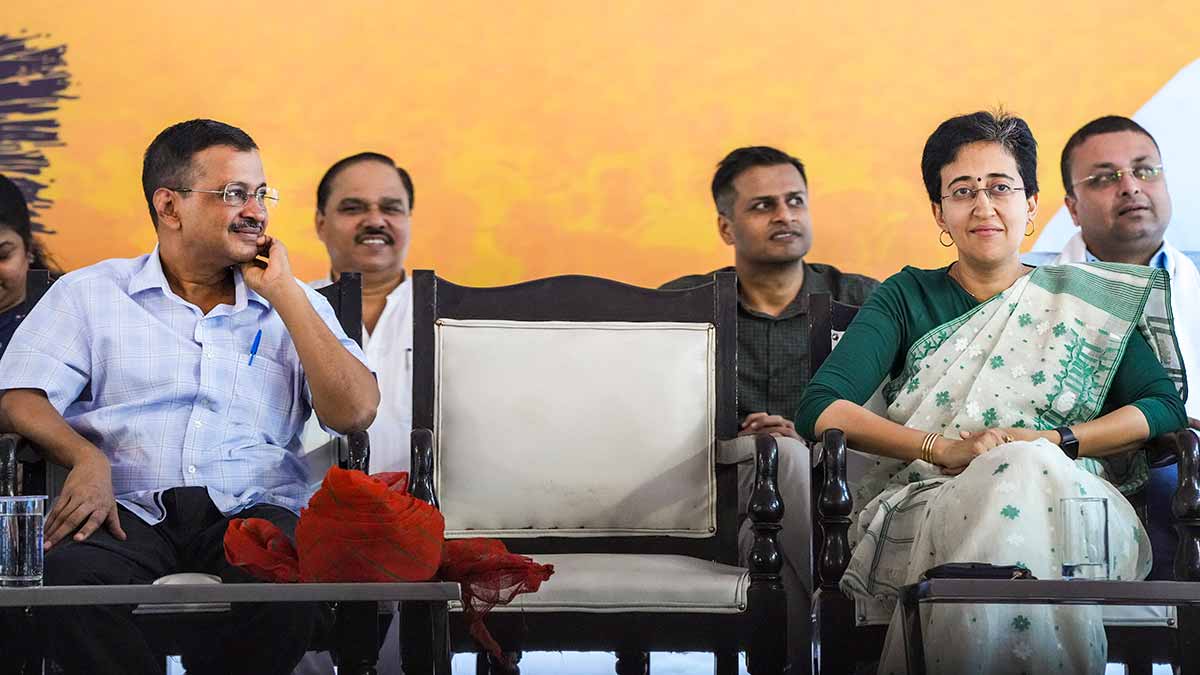ATISHI HELD HER first meeting with the bureaucrats of Delhi on September 24, three days after taking charge as the youngest chief minister of the state. It ended on a 'cordial' note, a departure from the regular confrontations with officials whom her party has been accusing of insubordination at the behest of Lieutenant Governor V.K. Saxena and the BJP.
What she said after the meeting took many by surprise. “As a government, it is our duty to ensure that government services reach even the last person in line, and that the government lives up to their expectations. The Delhi government and officials will work together to ensure that every person in need receives government services and can live with dignity.”
The “work together” paradigm has long eluded Delhi, especially in the past two years. The bitter battles over issues of governance between the government and the bureaucracy have been a constant. The discord hit its lowest with the arrest of Aam Aadmi Party chief Arvind Kejriwal on March 21 in the liquor policy case.
Delhi has a unique and complex relationship with the central government. The Legislative Assembly of the National Capital Territory has competence over entries in the state list and the concurrent list with the exceptions of public order, police and land. In 2023, in a ruling in favour of the government of Delhi, the Supreme Court said that the “elected” Delhi government will have legislative and executive control over administrative services except for the three excluded entries. A few weeks later, however, the Centre passed an ordinance nullifying the order, giving the powers back to the LG.
Since then, the control over services has been a bone of contention between the AAP government and the LG. While the BJP, in power at the Centre since 2014, accuses the AAP of being “corrupt”, the latter blames the Delhi LG of hindering all the work being done by the government and implicating senior AAP leaders in false cases.
This will be Atishi's biggest challenge, especially because of the short time she has―Delhi assembly elections are due next February. “My only goal is to make Arvind Kejriwal the chief minister again,” she said after becoming chief minister. The only way to achieve that is improving governance. “For that the relationship with the bureaucracy needs to be improved,” said Abhay Kumar Dubey, professor, Centre for Studies of the Developing Societies, Delhi.
Senior AAP leader Somnath Bharti, a three-time MLA from Malviya Nagar, said when both the arms of governance, the Delhi government and the LG office in this case, have the objective of serving the people, alliance will automatically happen. “However, in Delhi, the LG acts as the spokesperson for the BJP. For things to smoothen, the LG office will have to shun this image,” he said.
Atishi knows this battle well. She had been leading the AAP's charge against the LG in the absence of senior party leaders. “She is fully aware that governance in Delhi, even as chief minister, is not easy as the LG has special powers and the government does not have control over the bureaucracy,” said an AAP leader.
In Kejriwal’s absence, many welfare schemes of the Delhi government were confined to files. Their implementation will give the AAP a leg up in the run up to the assembly elections. “One issue the government faced with the arrest of Kejriwal was that cabinet meetings could not be convened. Now that has changed and Atishi should fast track key projects,” said an AAP leader.
It seems Atishi is focused on getting the job done. While other party leaders, including Kejriwal, have kept up their attacks on the LG and the BJP, she is refraining from commenting openly on contentious issues. “Atishi must find a middle way and take forward the works by taking the LG into confidence on all matters,” said political analyst Suresh P. Singh.
In the first 10 days of her government, Atishi announced an increase in the minimum wage, unveiled a 21-point winter action plan and directed the public works department to undertake a comprehensive road repair and strengthening initiative before Diwali. “The inertia that the city government was facing since the arrest of deputy chief minister Manish Sisodia is now gone. The authority of the government is now better. However, the bureaucracy is still under the LG and Atishi will have to manoeuvre cautiously,” said Arvind Mohan, a political analyst.
Atishi has a tough task cut out for her―damage control in governance, give the AAP a political and electoral push, maintain good relationship with senior colleagues in the party, find a way to work with the bureaucracy and create a new narrative to support the AAP’s election priorities. For this, conciliation seems to be a better option than confrontation. “There is an urgent need for the AAP to rebrand itself and move from a conflictual attitude to a reconciliatory and cooperating approach,” said Singh. “This is for the benefit of both the party and the people of Delhi.”


